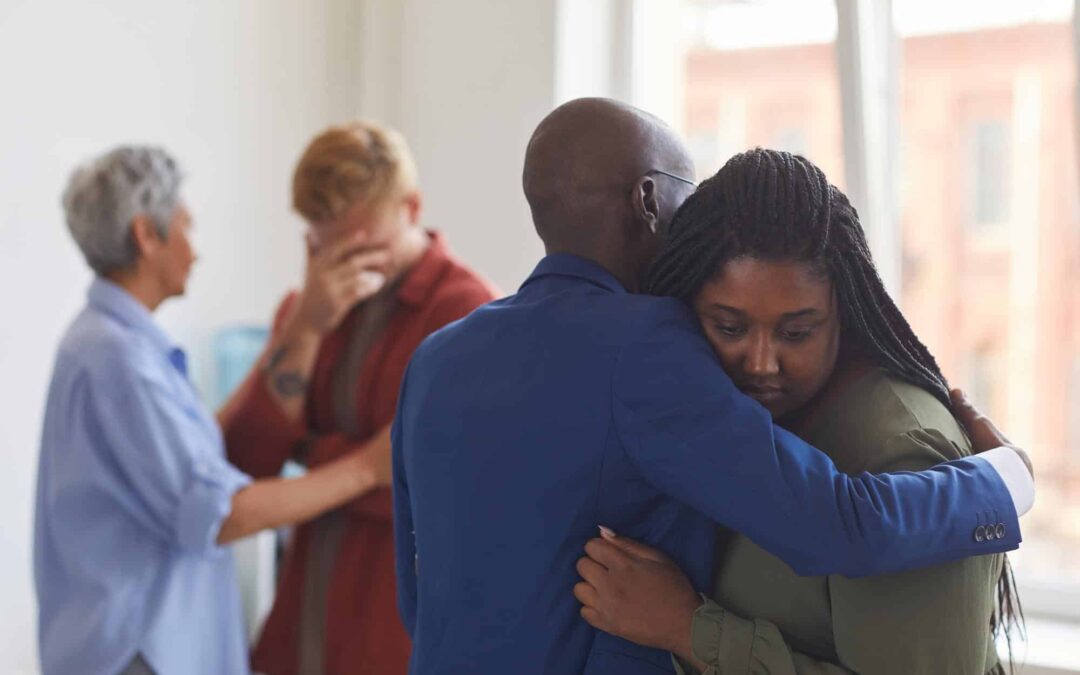Introduction
Experiencing night sweats after drinking can be an uncomfortable and puzzling issue. Night sweats, characterized by excessive sweating during sleep, go beyond the usual perspiration and can drench your sheets and pajamas. However, there’s a notable link between alcohol consumption and night sweats that many people may not be aware of.
Understanding the causes of night sweats after drinking is crucial for managing this phenomenon. It’s not just about feeling hot; rather, it involves a complex interplay of factors, such as:
- Effects on the nervous system, which can become overstimulated by alcohol
- Alcohol withdrawal symptoms, especially after heavy or prolonged use
- Hormonal fluctuations that may be triggered by drinking
Therefore, the key takeaway is this: Night sweats after drinking can arise from various factors, making it essential to understand how alcohol impacts your body in order to better manage and alleviate these symptoms.
The Science Behind Night Sweats
Night sweats can be more than just waking up feeling a bit hot. They are episodes of excessive sweating during sleep that drench your nightwear and bedding. Unlike regular sweating, night sweats are often intense and can disrupt your rest, leaving you feeling exhausted the next day.
What Constitutes Night Sweats?
Night sweats differ from typical sweating in a few key ways:
- Intensity: It’s not uncommon for people to wake up with soaked sheets.
- Frequency: These episodes can happen night after night.
- Disruption: They frequently interrupt sleep, affecting overall well-being.
Body Temperature Regulation
Your body’s temperature regulation is a complex process involving multiple systems:
- Hypothalamus: This tiny part of your brain acts as the thermostat, adjusting your body temperature.
- Nervous System: Signals from the hypothalamus prompt sweat glands to release sweat when you’re too warm.
- Blood Vessels: They dilate or constrict to manage heat loss or retention.
Alcohol throws a wrench into these carefully balanced mechanisms. Consuming alcohol impacts the central nervous system, which in turn affects how your body manages heat. For instance, alcohol can cause blood vessels to widen (vasodilation), leading to increased skin temperature and triggering sweating.
Understanding these physiological responses helps illuminate why night sweats might occur after drinking.
Exploring the Causes of Night Sweats After Drinking
Understanding why night sweats occur after drinking can help us manage and potentially prevent them. Here are some key factors:
1. Effects on the Nervous System
Alcohol has a significant impact on the central nervous system (CNS). When consumed, it can interfere with the body’s natural temperature regulation mechanisms. The CNS plays a crucial role in maintaining a stable internal temperature, but alcohol disrupts this balance, leading to excessive sweating.
2. Alcohol Withdrawal Symptoms
For individuals with alcohol dependency, night sweats might be a symptom of alcohol withdrawal. When someone abruptly stops drinking, the body reacts to the sudden absence of alcohol, which can result in various withdrawal symptoms, including night sweats. These sweats are part of the body’s effort to readjust without the presence of alcohol.
3. Alcohol Intolerance
Some people experience alcohol intolerance, where their bodies have an exaggerated response to alcohol consumption. This condition can lead to various physical reactions such as increased heart rate, nausea, and excessive sweating during sleep. This heightened reaction often results in night sweats after drinking even small amounts of alcohol.
4. Hormonal Fluctuations
Hormonal changes at different life stages can also play a role. For instance, women going through menopause often experience hot flashes and night sweats due to hormonal imbalances. Alcohol consumption can exacerbate these symptoms, making night sweats more likely.
5. Underlying Health Issues
It’s essential not to overlook potential medical conditions that could be causing night sweats after drinking. In fact, certain infections or cancers can manifest as night sweats. Therefore, if night sweats persist and are severe, they might indicate an underlying health issue that requires medical attention.
All of these factors highlight the complex relationship between alcohol and night sweats, further emphasizing the need for awareness and proactive management strategies.
Managing Night Sweats After Drinking
Dealing with night sweats after drinking can be a hassle, but there are practical steps you can take to reduce their occurrence or severity. Here are some tips:
Practice Moderation in Drinking
- Limit Alcohol Intake: Reducing the amount of alcohol you consume can minimize the body’s stress response and help regulate temperature more effectively.
- Avoid Binge Drinking: Consuming large quantities of alcohol in a short period can heighten the likelihood of night sweats. Stick to a moderate drinking pace.
- Stay Hydrated: Alcohol dehydrates the body, which can exacerbate sweating. Drink plenty of water before, during, and after alcohol consumption.
Maintain a Comfortable Sleeping Environment
- Cool Room Temperature: To manage night sweats effectively, keep your bedroom cool by using fans or air conditioning. Consequently, a lower room temperature can help reduce the occurrence of night sweats.
- Breathable Bedding: Opt for lightweight, moisture-wicking fabrics for your sheets and pajamas. This can help keep you dry and comfortable throughout the night.
- Layering: Use multiple light layers of blankets instead of a single heavy one. This allows you to adjust your comfort level easily during the night.
Additional Tips
- Relaxation Techniques: Stress and anxiety can exacerbate night sweats. Engage in activities like yoga, meditation, or deep breathing exercises to relax before bedtime.
- Regular Sleep Schedule: Maintaining a consistent sleep routine helps regulate your internal clock and may reduce instances of night sweats.
These strategies can contribute to more restful nights even after enjoying a few drinks.
Long-Term Risks Associated with Excessive Alcohol Use
Chronic alcohol consumption risks can lead to a multitude of serious health issues. Some of the potential health consequences include:
- Liver Damage Risk: Prolonged heavy drinking is notorious for causing liver damage, such as fatty liver disease, alcoholic hepatitis, and cirrhosis. These conditions can escalate to liver failure, requiring extensive medical intervention.
- Increased Cancer Risk: Heavy alcohol use raises the risk for several types of cancer, including cancers of the mouth, throat, esophagus, liver, colon, and breast. The carcinogenic properties of alcohol can significantly impact long-term health.
The importance of understanding these risks lies in taking proactive measures to moderate alcohol intake and prioritize overall well-being.
When to Seek Medical Advice for Night Sweats After Drinking
Experiencing night sweats after drinking can be concerning, and knowing when to seek medical advice is crucial.
Consider consulting a healthcare professional if:
- Night sweats are frequent or severe: If occurrences of intense sweating consistently disrupt sleep, it may indicate an underlying issue requiring prompt attention.
- You experience other symptoms: If night sweats are accompanied by additional symptoms like fever, weight loss, or fatigue, it could indicate a more serious underlying health condition that requires immediate attention. Addressing these symptoms promptly is crucial to prevent any potential complications.
- There’s a history of alcohol dependence: Individuals with a history of alcohol dependency should seek medical guidance, as night sweats might be part of withdrawal symptoms and require proper management.
- Persistent despite reducing alcohol intake: If night sweats continue even after cutting down on alcohol consumption, it’s crucial to rule out other potential causes by consulting a healthcare provider.
Seeking medical advice for night sweats after drinking not only aids in identifying underlying conditions but also helps in developing a suitable management plan.
Conclusion: Understanding Night Sweats After Drinking
Experiencing night sweats after drinking can be confusing and uncomfortable. The connection between alcohol consumption and night sweats is complex, involving factors like the central nervous system, withdrawal symptoms, alcohol intolerance, hormonal changes, and potential underlying health issues.
Key takeaways:
- Complex interplay: Alcohol affects the body’s temperature regulation through multiple pathways. This can lead to night sweats, especially when alcohol use is excessive or sudden cessation occurs.
- Proactive management: Understanding the triggers and implementing practical strategies can help manage symptoms. Moderation in drinking, maintaining a cool sleeping environment, and being mindful of one’s overall health are crucial steps.
- Seek help if needed: If persistent or severe night sweats occur, they might indicate a deeper issue. Therefore, contacting healthcare professionals for advice and support can provide clarity and treatment options.
For those needing assistance with alcohol-related issues, it’s important to consider reaching out to Resolute Recovery, a leading addiction and alcohol rehab center in Massachusetts. They not only offer a variety of SUD programs but also provide tailored therapy programs to guide individuals through their recovery journey. If you or someone you know is struggling, don’t hesitate to contact them for the support you need.
References & Resources
Articles and Research Papers
- Mayo Clinic: Night Sweats
- National Institute on Alcohol Abuse and Alcoholism (NIAAA): Understanding the Effects of Alcohol on Health
- WebMD: What Causes Night Sweats?
Books
- “The Biology of Alcoholism” by Benjamin Kissin and Henri Begleiter
- “Alcohol Explained” by William Porter
Online Support and Resources
- Resolute Recovery: Leading Addiction and Alcohol Rehab Center in Massachusetts. Visit our website for more information or to get help.
Healthcare Providers
- Finding a Specialist: Use resources like Healthgrades or Zocdoc to locate a healthcare provider specializing in alcohol dependency or related health issues.
Community Support Groups
- Alcoholics Anonymous (AA): Find a Meeting
- SMART Recovery: Get Help
Helplines
- SAMHSA’s National Helpline: 1-800-662-HELP (4357)
Understanding night sweats after drinking is crucial for your overall well-being. By recognizing the potential causes and effects, you can take proactive steps toward managing the symptoms. Additionally, these resources can provide valuable insights and support, helping you navigate through this issue with confidence and care.





